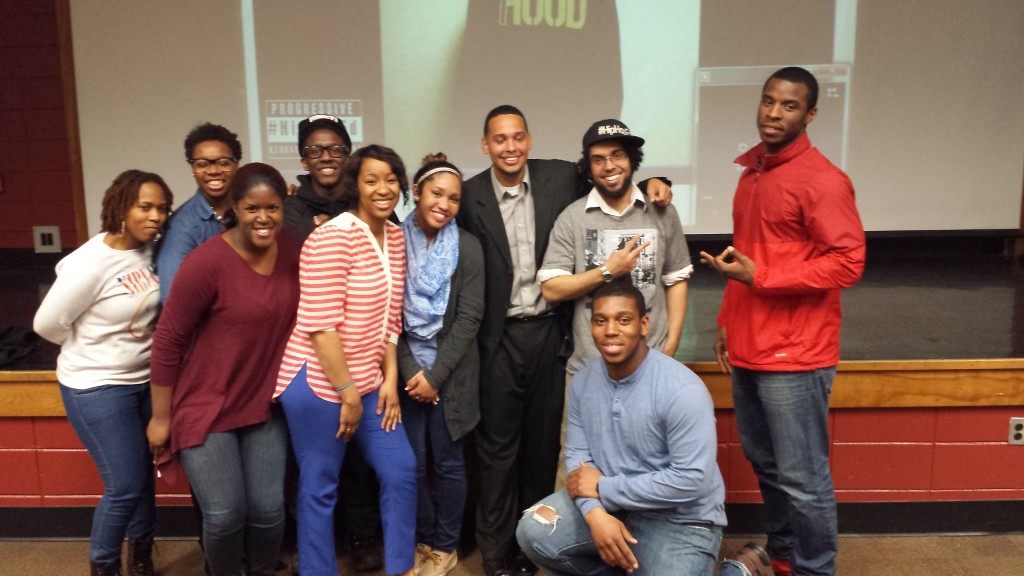

Photo Credit / Jenny Bront
By Jenny Bront
SC Staff Writer
East Stroudsburg University has been home to many speakers over the years, but Amil Cook is one of the most creative.
Tuesday’s presentation centered around the problems perpetuated by today’s hip-hop culture. Amil Cook was raised in Boston.
He received his B.A. at Morehouse College in Atlanta in African American Studies. He earned his Master’s in Secondary Education and History from Clarion University.
In Pittsburgh, he taught Africana Studies and spoke as an advocate for at-risk youth.
Cook was also a Clinical Supervisor for youths in the justice system, succeeding in employing some of those youths in the criminal justice system.
His studies also brought him to South Africa and Brazil where he studied Human Rights.
Through his lecture, students learn about the history of hip-hop.
It’s roots began as a response to oppression and racism, and since then it has evolved into it’s own subculture.
Hip-Hop, which was derived from styles such as disco, funk, jazz, and blues, includes five common elements: Dee Jays, Bboying, an EmCEE (aka Master of Ceremony), Graffiti, and Knowledge, something that is usually missing from today’s hip-hop culture.
Cook also addressed the problems that Hip-hop has been known to instigate such as materialism, gangs and violence, hyper masculinity, drugs and alcohol, and the abuse or use of women.
The last element, knowledge, is usually left out.
Because of these negative stereotypes, people often forget that music in this genre does have an Educational Value.
Artists like Jay-Z put bits of knowledge into their songs about African American history and more.
Cook wants to open people’s eyes and reveal his P.E.A.C.E goal for the future of Hip-Hop: Proper Education Activates Constant Elevation.
He even presented Idasa Tariq, artist, producer, and educator, who did a few of his songs.
The songs had a common message: Doing more for the community. His songs exemplify P.E.A.C.E.
Furthermore, he addressed the future of hip-hop and what it could do for society — Hip-Hop tech companies, schools and universities, international hip-hop organizations, banks and entrepreneurial support, health care, mental health care, and doctors.
He even suggested tips for future career holders and how designing a web-site now can help you get a job in the future.
The presentation was informative and inspiring, but the only problem is that it is centered on only one type of audience.
It is my belief that Hip-Hop is universal — for anyone who is need of it’s soul-soothing beats, but Cook didn’t address the other members of society at all.
He believes in integration, yet he divides the hip-hop culture from the rest of society.
We have all gone through our own sufferings and challenges, and to strengthen his presentation further he should address other members of hip-hop society.
Other than that I commend him for the effort he puts into his presentations and demonstrations and hope that he continues to spread his message.
Email Jenny at:
jbront@live.esu.edu

